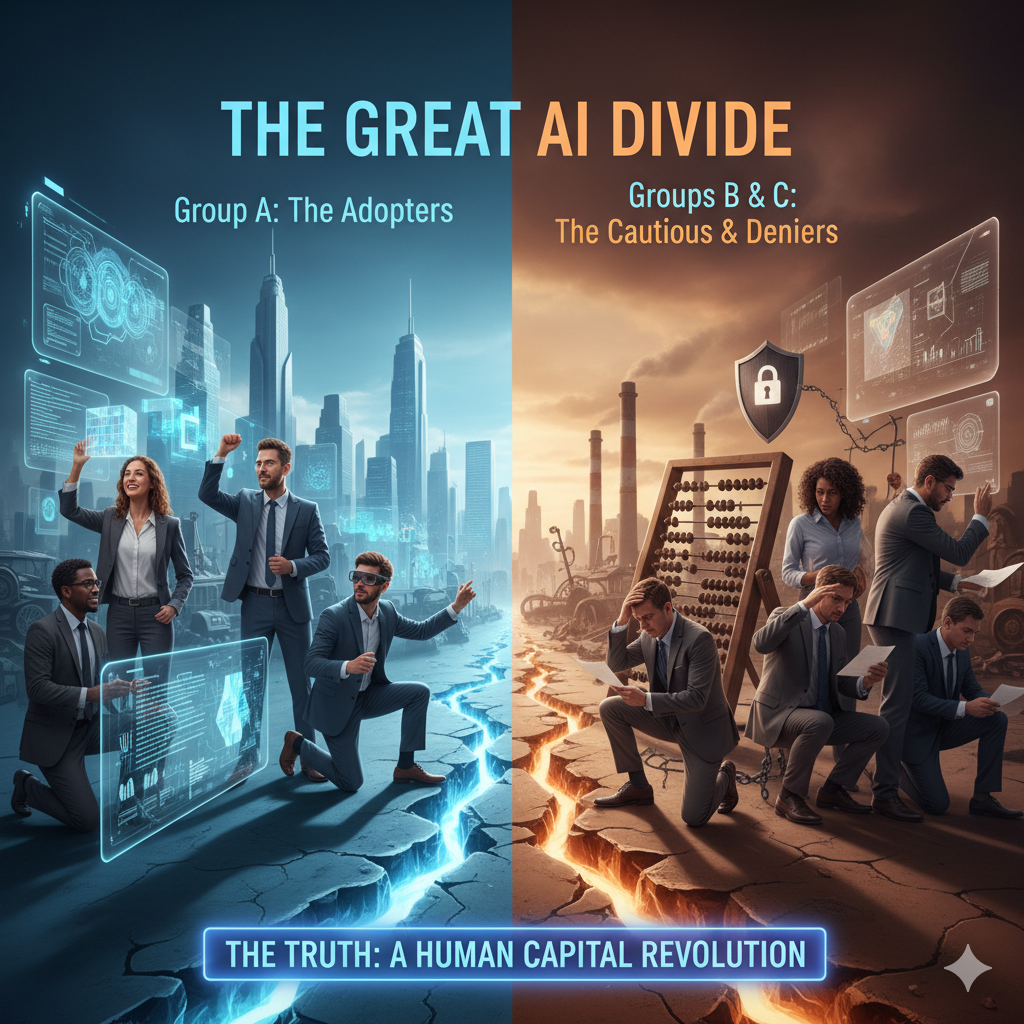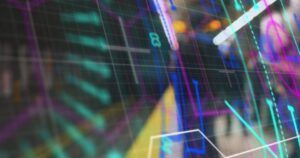🚧 A Dividing Line Is Emerging Around AI — and It’s Bigger Than We Think
Over the past months, I’ve had conversations about AI in three completely different worlds — and the contrast is astonishing.
1️⃣ The “Grey-Hair Room”: AI as a 10% Productivity Too
At a recent conference, a renowned French policy advisor confidently stated that AI would bring “around 10% productivity gains.”
The room nodded.
AI was framed as efficiency, not disruption — a reassuring narrative in spaces where change feels threatening.
2️⃣ The Tech-First Conferences: AI as a Force Multiplier
A few days later, at AI and cloud events buzzing with engineers and innovators, McKinsey & Company presented findings showing the opposite:
Companies that embrace clean data, iteration, and AI at scale are seeing major ROI — not marginal improvements.
For them, AI isn’t an add-on. It’s a new operating system for business. Needless to say I agree.
3️⃣ Corporate Boards: AI still discussed mostly Through Risk
At another tech event in Paris, executives spoke about AI but kept noting that their Boards constantly are returning to:
cybersecurity
compliance
reputational risk
ethical failures
Important concerns, yes — but this mindset treats AI as something to contain, not something to build with.
4️⃣ Everyday People: Fear and Skepticism
Talking to friends and family outside tech, I hear:
fear of job loss
confusion
skepticism
AI feels inaccessible — even threatening.
5️⃣ The Builders and Learners: A Completely Different Attitude
Meanwhile, in my Travel Tech, MIT Sloan circles and across LinkedIn, people I engage with are:
building
experimenting
learning
failing fast
embracing AI as the biggest shift since the industrial revolution
For them, the opportunity is enormous — and obvious.
🔍 What’s Really Going On? A Historic Divide.
We’re entering what may be the biggest cognitive and strategic divide of the century:
🟩 Group A — The Adopters
They understand the scale of change, educate themselves, experiment, and accept that ethics evolve with practice.
These people will qualify for the new, AI-augmented jobs.
🟨 Group B — The Cautious Regulators
They ask the right questions, focus on governance and risk, and move carefully.
Short-term protection, long-term risk of falling behind.
🟥 Group C — The Deniers
They reject or ignore AI as “hype.”
They will face the most disruption — not because AI destroys jobs, but because they won’t be skilled for the new ones.
🌊 The Tsunami Isn’t Automation — It’s Skill Shift
AI won’t replace all jobs.
But it will reshape almost every job.
💡 The Truth: AI Is Not a Tech Revolution. It’s a Human Capital Revolution.
And right now, the gap between adopters and avoiders is widening faster than anything I’ve witnessed in my career.
The question isn’t whether AI will transform work.
It’s whether we will choose to transform with it.




